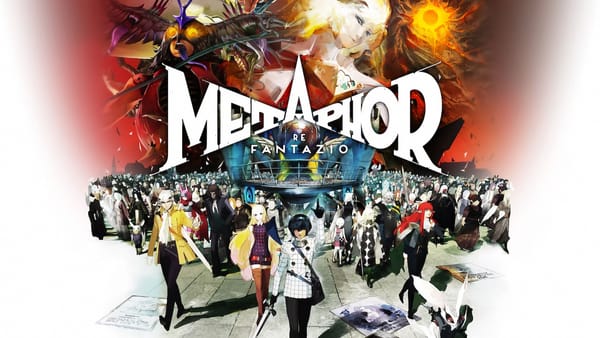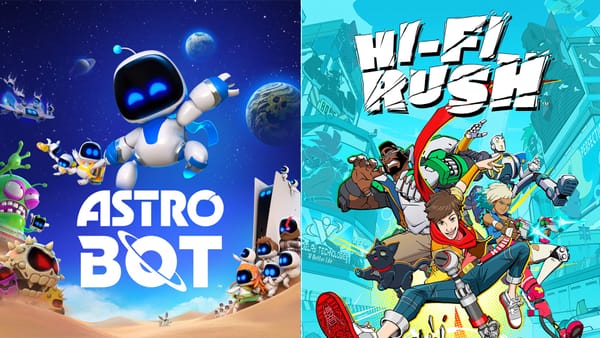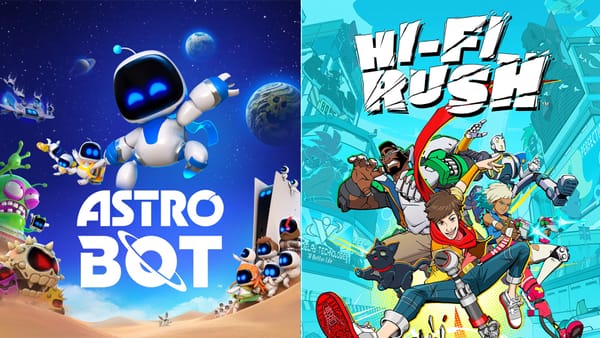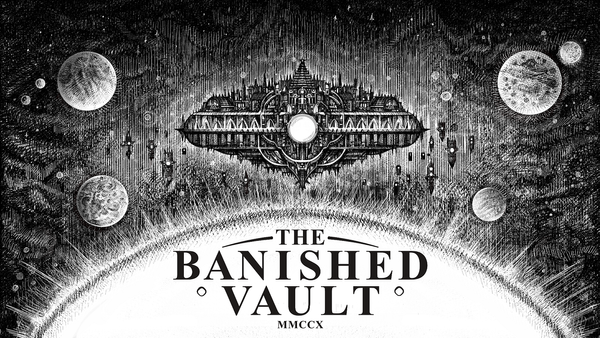Midnight Suns and my midnight son
Guest Backlog from Brandon Walsh

[Editor's Note: Usually I don't do an editor's note for repeat writers like Brandon Walsh, my good friend and Backlog regular, but circumstances compel me to ensure that you all know that I, Grayson, did not secretly have a kid. I know there's a byline and all, but, you know. Just trying to avoid that. Anyway, here's Brandon with another brilliant Backlog for you. -Grayson, Childless Ogre]
As my wife and I counted down the hours until our son was born, I settled in for a long night. While she tried to get some rest, I fired up the Steam Deck and browsed my library for some games to kill time. After a few aborted minutes on Hellblade: Senua's Sacrifice,[1] I queued up another download and put down the Deck while it tried to pull down multiple gigs from the beleaguered guest WiFi at the hospital.
In Salman Rushdie's Midnight's Children, a group of children born at midnight on the date of Indian independence find themselves with supernatural abilities. My own son was born at 11:56 PM, just a few minutes shy of superpowers, but close enough that the labor and delivery team were taking bets on his date of birth. It would be several days before I would actually get back to the videogame I downloaded in those waning pre-parent hours: Marvel's Midnight Suns. Beginning the game, I realized belatedly that it was another story about midnights, powers, and families. It became my go-to mechanism for passing time while I watched over our newborn during the coming weeks, sleeping on our nursery floor while our son tried to unlock sleep on his growing skill tree.
The game had been recommended to me as a combination of XCOM and a deck builder. The game succeeds well enough on those merits. Endlessly tinkering with my decks and unlocking new abilities for the next battle was a welcome companion during those many sleepless nights.[2] Ultimately, its charms began to wane, however. Though the game does a good job of complicating its own systems as it progresses, I found myself hitting a similar sort of wall as I did playing XCOM. Mechanics that are enticing at first—base building, side missions, character progression—become rote, almost by default, by the time you’ve seen them 50 times. This was especially true, I felt, when it came to Midnight Sun’s relationship system.
Where Midnight Suns diverges most from XCOM is in its attempts to build in another mechanic based around friendship and relationship building._ _The game takes after _Fire Emblem: Three Houses or Persona in this way, but _in Midnight Suns, talking with your budding friends about themselves feels less like getting to know someone and more like asking for a lore dump. Often, conversing with your companions felt like the equivalent of copy and pasting the Marvel Comics Database into a dialogue tree. I kept engaging with them, though, because the game rewards you mechanically for doing so. Go on enough friendship dates with Blade and you'll unlock a buff to help in future fights. Enough hang outs with the Scarlet Witch and you'll nab a combo card that can be devastating in boss fights. Confusingly, though, the game punishes the player for developing these friendships, forcing you to use only those characters with which you bonded the least in an excruciatingly difficult final marathon of encounters. For a game that wants to boil friendship down to a series of mechanics and point systems, it seems confused about exactly whether or not it values bonding with another person.
Making matters worse, the primary plot of Midnight Suns is largely forgettable: There are bad people doing bad things, and sometimes the good people turn out to be bad for a while before becoming good again.[3] It's all very comic book, but not enough to stick with you when you put the game down. There’s also an odd emphasis on familial bonds driving the whole thing. Besides their found family of superheroes, the player's avatar has an actual parent in the mix: Almost every narrative sequence revolves around the relationship between you and your mother Lilith.[4] The game obsessively asks whether your mother is a force of evil and forces you to choose dialogue that elects to judge–or not–her actions.
"How manipulative and inane," I thought, each time the game attempted to go back to this well. But then, I would put my game down and leave my son's room and have eerily similar conversations with my wife. Are we doing right by our child? If we make a decision that makes him cry for a moment for his own good, is that justified? I'd long been told that having a child would rewire my priorities, but I wasn't prepared for how much it would also simplify them.
It turns out archetypes exist for a reason: When used well, they speak to elemental parts of the human experience. In an odd way this most archetypal element of the game became the most moving. The more I played Midnight Suns the less I saw the villain as a tired evil parent trope and the more identified with her as a fellow traveler on a difficult journey. Before, I might have found the endless fragmentary justifications for Lilith's actions necessary. Now, every time I returned to Midnight Suns, I would take the option to approve of Lilith's morally gray actions to protect her child.
The game dutifully plugged these responses into its Light/Dark path system, warning me of my drift towards corruption. But as I slid towards darkness, it didn't feel like choosing evil. It felt like making the obvious choice. Every time my wife and I questioned whether we were good parents, I'd think back to Midnight Suns and its relentless attempts to smash the same emotional button. Lilith made a deal with a demon god to save the life of her child. I get it. No lore dumps necessary to explain it away—she was just doing her best.
Not a good game for an anxious parent-to-be! ↩︎
At one point, my Steam account glitched and claimed I had over 8000 hours played. I swear I do sleep occasionally. ↩︎
The game doubles down on this with its twin Light/Dark dialogue paths. Will you be bad? Will you be good? ↩︎
Yep, it's that on the nose. ↩︎




